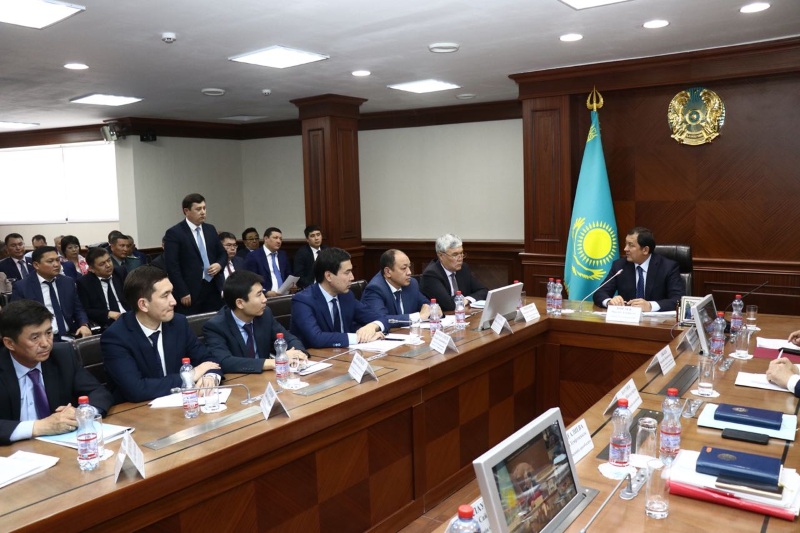ASTANA – The Atyrau region, one of Kazakhstan’s major oil producing regions, is seeking to boost agricultural development in an effort to diversify its economy. The changes also include the fishing industry, an important area for the region located on the shores of the Caspian Sea.
During the recent expanded meeting, regional Akim (Governor) Nurlan Nogayev, representatives of the Atamaken National Chamber of Entrepreneurs and local agricultural producers discussed the problems in the field.
Nogayev noted the importance of developing agriculture to the region’s economy, which currently accounts for only 1 percent of its gross regional product. Last year, Atyrau’s gross agricultural output reached nearly 62.7 billion tenge (US$186.78 million).
The region has seen 22 large agricultural projects in the last five years with investments totalling 19.8 billion tenge (US$58.98 million).
Several factors inhibit developing the region’s agricultural complex, noted Atameken agro industrial complex and food industry department head Yerbol Yeseneyev.
“It includes irrigation infrastructure. The current irrigation systems are scattered and outdated. For instance, the irrigated area decreased by 20 times in the Inder district due to the high cost of water. To compare, the cost of water in Atyrau is four times more expensive than the average cost in Kazakhstan. The same factors hamper the development of farming,” he said.
He emphasised the need to prepare a five-year regional agricultural development strategy and outlined several areas to include in the document – establishing special agriculture zones, developing distant pasture cattle breeding and distributing subsidies based on zones and water supply.
The fishing industry should also be part of the strategy, added Yeseneyev. Local fishers have long called for fair and transparent distribution of quotas, extending the fishing season and reconstructing sturgeon hatcheries, among other issues.
Nogayev stressed the need to address quota distribution.
“How would you explain two firms where one has a full package of equipment and qualified staff, while another has nothing and whose work is just on paper, but the two firms receive equal quotas? This is the information that I receive,” he said.
The agriculture strategy initiative was also voiced by Atameken chair Timur Kulibayev in May during his visit to the region.
“We need to prepare the development map for the region that will envision the development of an agro industrial complex, including the fishing industry, dairy production and farming. We will work out these issues with the Agriculture Ministry, produce a work plan and will work along this plan,” he said at the time.
During the meeting, Nogayev also criticised the Bastau Business project, which is meant to teach the basics of entrepreneurship and business to unemployed and self-employed people in rural areas. It does not fulfil its objectives, he said.
“Seven hundred and fifty people in the region were trained as part of this programme and only 135 of them set up their business, half at their own expense. Where are the rest? Do we need to train so many people? We need quality, not quantity. We need to pay attention to this,” he stressed.
Last year, the local budget allocated 222 grants to train specialists in the field, he noted.
“One hundred and seventy-nine grants were for pedagogical majors, 35 for doctors and nine for veterinary studies. We are monitoring the specialties that are in demand. The region will start the implementation of the oil and chemical complex project soon and we will need specialists in this area; therefore, it is necessary to understand the situation,” he added.


